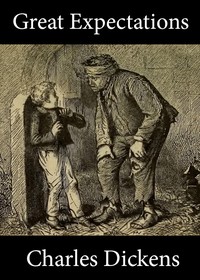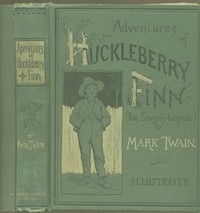
Great Expectations
Charles Dickens
Chapter I.
My
father’s family name being Pirrip, and my Christian name Philip, my infant
tongue could make of both names nothing longer or more explicit than Pip. So, I
called myself Pip, and came to be called Pip.
I give Pirrip as my father’s family name, on the authority of his tombstone and
my sister,—Mrs. Joe Gargery, who married the blacksmith. As I never saw my
father or my mother, and never saw any likeness of either of them (for their
days were long before the days of photographs), my first fancies regarding what
they were like were unreasonably derived from their tombstones. The shape of
the letters on my father’s, gave me an odd idea that he was a square, stout,
dark man, with curly black hair. From the character and turn of the
inscription, “Also Georgiana Wife of the Above,” I drew a childish
conclusion that my mother was freckled and sickly. To five little stone
lozenges, each about a foot and a half long, which were arranged in a neat row
beside their grave, and were sacred to the memory of five little brothers of
mine,—who gave up trying to get a living, exceedingly early in that universal
struggle,—I am indebted for a belief I religiously entertained that they had
all been born on their backs with their hands in their trousers-pockets, and
had never taken them out in this state of existence.
Ours was the marsh country, down by the river, within, as the river wound,
twenty miles of the sea. My first most vivid and broad impression of the
identity of th ...
Total Pages:
410
Book Details & Editions
About the author

Charles Dickens
"Great Expectations" by Charles Dickens is a novel written in the mid-19th century (Victorian era). The story follows the life of a young orphan named Philip "Pip" Pirrip as he navigates social classes, personal aspirations, and the complexities of human relationships. The narrative begins with Pip's fateful encounter with an escaped convict, setting the stage for themes of ambition, morality, and transformation. The opening of the novel introduces Pip as he wanders through a churchyard, reflecting on his family history derived from tombstones. His innocent musings are interrupted by a terrifying confrontation with a convict who demands food and a file, instilling fear in Pip. As Pip grapples with the fear of being discovered stealing food for the convict and the horror of his surroundings, we are drawn into the bleak marshes that shape much of his childhood. This intense encounter not only establishes a sense of danger but also foreshadows Pip's future entanglements with crime and class disparity, as he later must navigate his relationships with figures from both the convict's world and his own lower-class upbringing. (This is an automatically generated summary.)



